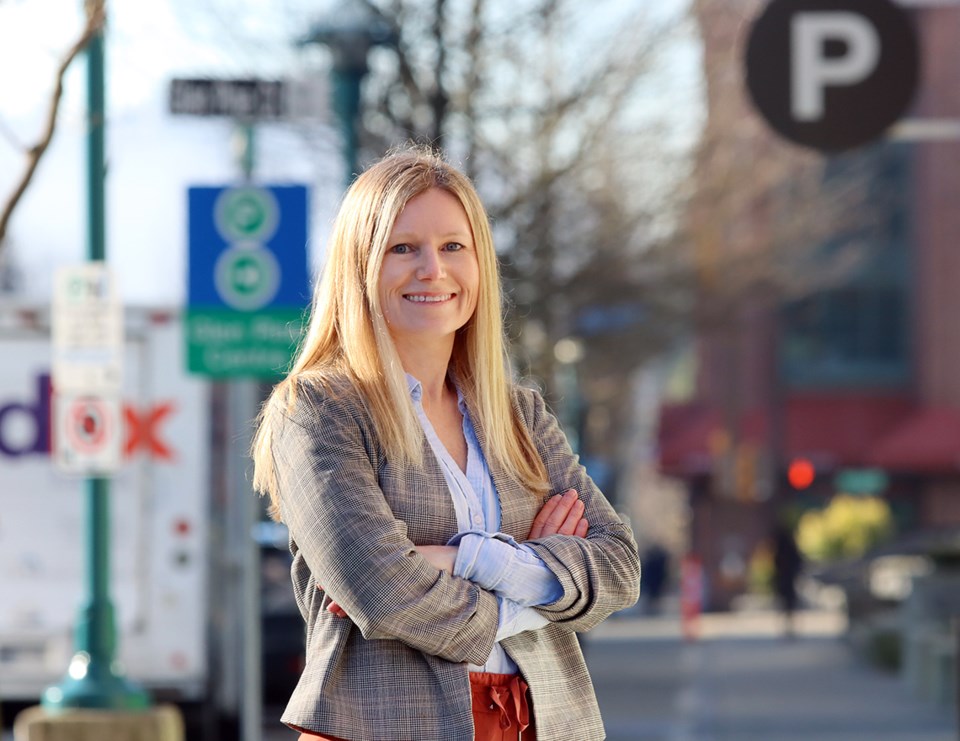Coquitlam is rolling out its first environmental sustainability plan, a document that city council greenlighted last month — in the middle of public cries to save trees near Mundy Park — after several years of consultation with the community, regional partners and κʷικʷəƛ̓əμ First Nation.
Split into five themes — Climate Action, Built Environment, Waste Management, Water Management and Natural Areas, and Wildlife and Habitat — the broad-based document will be updated every five to 10 years to stay current.
On Tuesday (Feb. 1), the Tri-City News talked to Coquitlam’s environment manager Caresse Selk about what the newly adopted plan says and means to Coquitlam residents and businesses.
Here’s an edited version of our chat:
Why now?
The city has been doing a variety of environmental sustainability initiatives for many years but we never had it housed in one cohesive document. And we’ve certainly seen that climate change is becoming more and more impactful in our communities. In terms of timing, it was really important for us to move forward with a strategy now so we have long-term plan moving forward. One of the parts of the plan that we’re really excited about is new greenhouse gas (GHG) reduction goals for the city. Governments are starting to fall in line with the United Nations’ recommendation.
How has the plan evolved since last year’s extreme weather events?
That’s when we really started to look at new GHG targets in the city. Our GHG goals are now looking out to 2050 to be carbon neutral. Most of the GHG emissions in our community come from transportation and from buildings, so we need to start looking at ways that we can electrify those systems. As part of the city’s 2022 business plan, council has approved for us to move forward with the Climate Action Plan. It’s an “A” priority. That’s going to delve into the details about how we are going to reduce our emissions. It also really requires that other levels of government are putting in place ambitious policies. By 2030 or 2035, all new vehicles sales are supposed to be 100 per cent electric.
Did you mirror Coquitlam’s plan after another municipality’s?
There’s not one. We did a very comprehensive document review and we looked at sustainability plans across Canada. We looked at ones in the United States and even in Europe. There were a couple in the Pacific Northwest that we quite liked: the City of Bellevue is now on its third iteration of its environmental sustainability plan; they were one of the first out of the gate to put together a comprehensive plan. But this is a made-in-Coquitlam document. It’s tailored to our community. We’ve reviewed both of Port Coquitlam and Port Moody’s plans. An opportunity that’s unique to Coquitlam is we now have our SkyTrain line. We are transportation-focused to really help get people out of their cars and focus on electrification. There’s lot of growth along the SkyTrain station.
As a city, how do you balance densification with keeping the tree canopy?
We worked really collaboratively with the planning and development department on the plan. It wasn’t built in isolation. The city does really value trees and that’s why we plant over 3,000 trees and native plants annually. Council prioritized the development of an Urban Forest Management Plan for 2022. It will allow us to be strategic and intentional about adding more trees to our city.
How do make sure this is a living document?
There are 135 actions that are identified in the plan. Those are our deliverables. We’ve already started with our Top 10 actions for 2022, like the development of an electric mobility strategy and the implementation of a single-use item bylaw to help minimize plastic items in businesses. Metro Vancouver just passed a harmonized approach so they’re looking at instead of every municipality having its own bylaw, which can be really confusing for both businesses and customers. Municipalities can use one approach. We will also be reporting out annually to council to make sure the plan is moving forward. We’re really proud of it and it’s important plan in the face of climate change.





